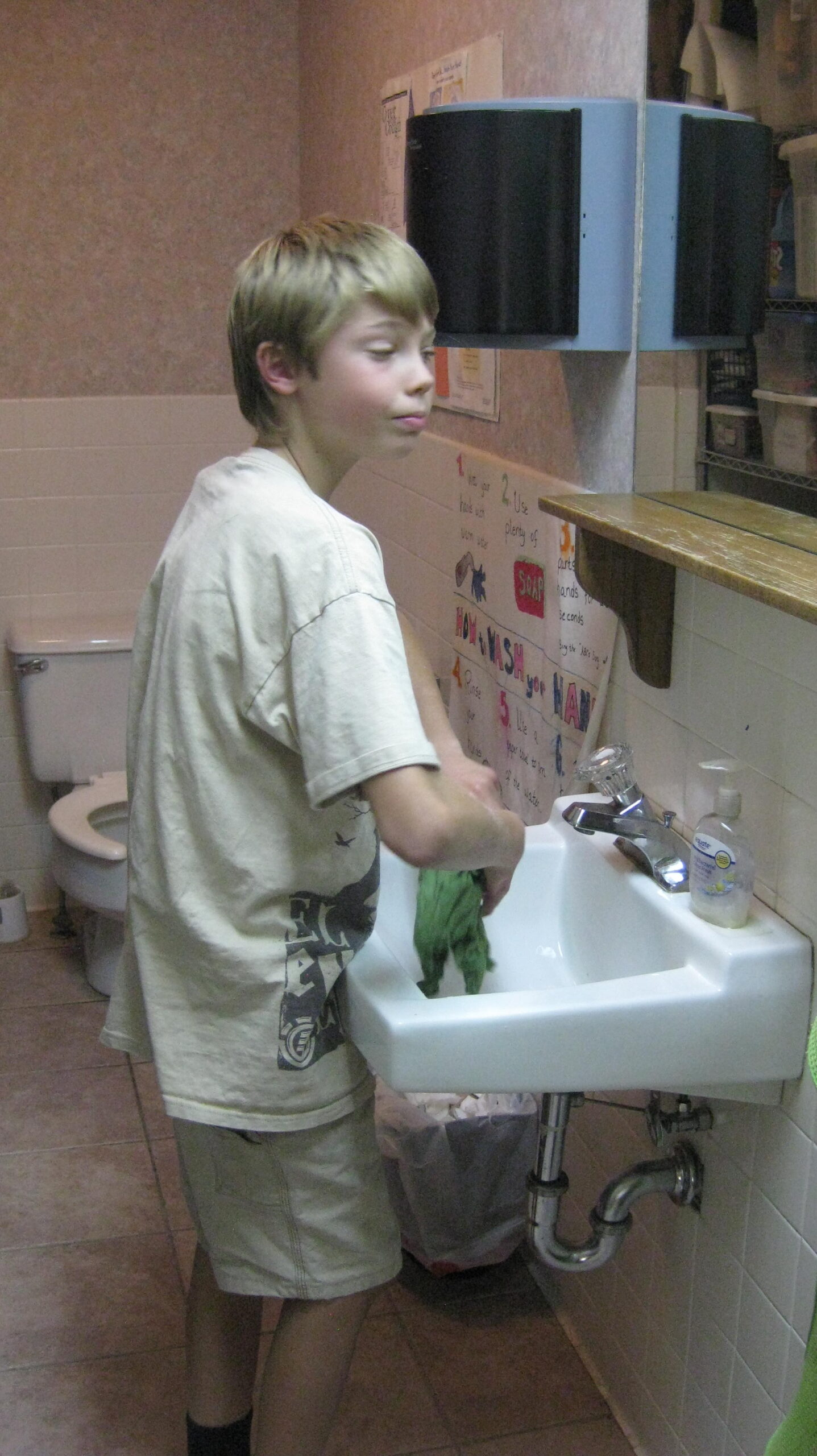‘You are a new (hu)man that must adapt to this new world. Go on triumphantly. I am here to help you.’ ”
Maria Montessori - The 1946 London Lectures

This quote, a new one to me, landed so perfectly as a reflection of recent work I’m doing with a specialized Montessori program whose staff faces extraordinary challenges. I’ve not met a more dedicated, caring staff of both Montessorians and teachers trained in working with students experiencing a variety of disabilities.
We must give him the means and encourage him. ‘Courage, my dear, courage! You are a new man that must adapt to this new world. Go on triumphantly. I am here to help you.’ This kind of encouragement is instinctive in those who love children.
Maria Montessori - The 1946 London Lectures
Many of the children in this publicly funded charter school are both significantly and seriously impacted by physical and emotional limitations. It’s common for families to be separated by divorce, incarceration, or even death.
I’m sure that it will come as no surprise that behavior issues occupy a great deal of the teachers’ energy and time. Try as they might to avoid it, teachers and specialists sometimes, maybe even often, resort to practices that would not typically find their way into Montessori “best” practices. But, truthfully and in their defense, determining what would be a “best” practice in some of the difficult circumstances is elusive.
That’s why I often exercise a caveat when sharing my ideas or advice for handling a problem. Regardless of my well-intentioned desire to help, I’m not present in the classrooms day in and day out. I can’t know whether the help I believe I’d try would be well-received or would cause more problems. So, I share the thoughts underneath my choice of action and give the teacher some freedom to choose the action they feel comfortable taking. I offer encouragement to try my ideas, but I also exercise patience with decisions that might come from either knowledge or insecurities held by the guide.
I consider Dr. Montessori’s words about adapting to a new world. The world these children are facing is not only different by at least one if not two generations than my own, but my cultural background can only provide me with an awareness that I simply can’t know the stresses these students are trying to manage. I have a little experience with raising a child with a significant disability, but the systemic racism and difficult homelives so many of these children face is quite far from my life experiences. The best I can do is admit my bias, acknowledge my lack of personal experience, and practice good listening and thoughtful problem-investigation to help those on the front lines.
So, how do we decide which actions will help? It’s been my practice to give things a try using what I know about human development and tendencies. Recently, I suggested a conversation with a 9-year-old about trust. This could have easily backfired, but when I suggested the teacher show the student how their behaviors had caused the guide’s trust to fluctuate. I suggested the guide might even draw a picture illustrating when trust was high, when trust diminished, and when trust returned. The child appeared not only to understand, but also to care about it. The student asked for the opportunity to earn the teachers’ trust back. At the end of the morning, they asked if they’d been successful. They said they really wanted to be part of the class and would do their best to keep her trust.
For this child, who may not have a lot of trusting or trustworthy relationships in their life, this was a concept that seemed to appeal. In this case, the help that was needed by this child was the opportunity to feel triumphant through the courage to earn trust, an experience they hadn’t had…maybe ever.
It was well worth the reminder that the help may not come in the form of a Montessori lesson or a traditional approach to achieving concentration. This case of following the child meant offering help that might have been rejected.

The teacher got a great lesson, too. She exercised courage in offering a behavioral boundary that the student could control. And with this student, whose tendency is to tantrum, yell, and run away, that was a scary risk to take! But from the text I received at the end of her morning, I could tell she was beaming…not so much for herself, but for this student who will benefit greatly from learning to navigate the waters of trust and how they can be managed from both sides: the side seeking to establish trust and the one desiring to feel trust for others.





